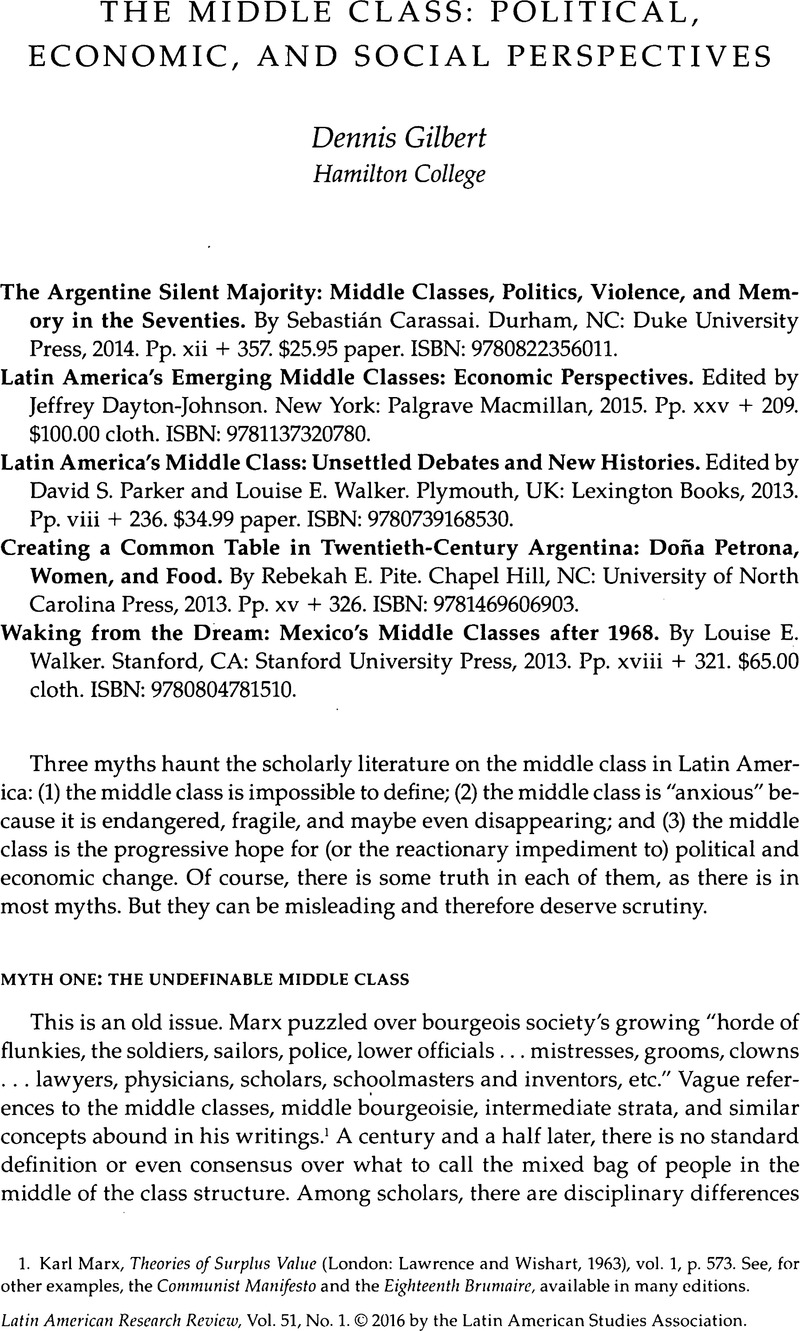Article contents
The Middle Class: Political, Economic, and Social Perspectives
Review products
Published online by Cambridge University Press: 05 September 2022
Abstract

- Type
- Review Essays
- Information
- Copyright
- Copyright © 2016 by the Latin American Studies Association
References
1. Karl Marx, Theories of Surplus Value (London: Lawrence and Wishart, 1963), vol. 1, p. 573. See, for other examples, the Communist Manifesto and the Eighteenth Brumaire, available in many editions.
2. My own work falls into this category, notably Mexico's Middle Class in the Neoliberal Era (Tucson: University of Arizona Press, 2007).
3. Walker gives a clear explanation of the differences. However, her table A.1 mixes up the figures for 1992 to 1996 from my main middle-class series. See Gilbert, Mexico's Middle Class, 95. For some other Latin American countries in the twentieth century see the “higher non-manual” series in Orlandina de Oliveira and Bryan Roberts, “Urban Social Structures in Latin America, 1930-1990,” in Latin America: Economy and Society since 1930, ed. Leslie Bethell (New York: Cambridge University Press, 1998), 305-312.
4. See Arthur J. Vidich, ed., The New Middle Classes: Life-Styles, Status Claims, and Political Orientations (New York: New York University Press, 1995).
5. John J. Johnson, Political Change in Latin America: The Emergence of the Middle Sectors (Stanford, CA: Stanford University Press, 1958).
6. Dennis Gilbert, “Social Class and Voter Preference in Recent Mexican Elections.” Mexican Studies/Estudios Mexicanos 28, no. 2 (2012): 327-350.
7. In a future printing, the publishers may want to correct a peculiar error regarding this period. General Juan Carlos Onganía was not murdered by the Montoneros in 1970 (184). He died in his bed in a military hospital in 1995.
- 1
- Cited by




